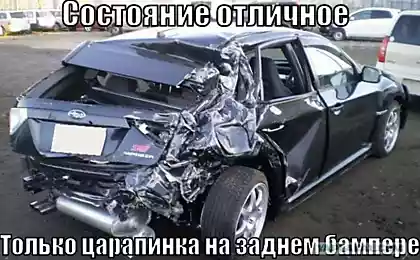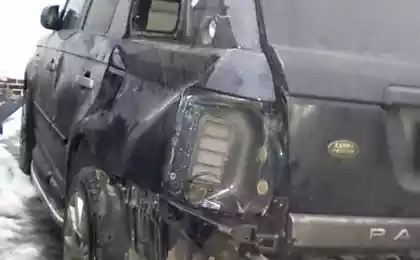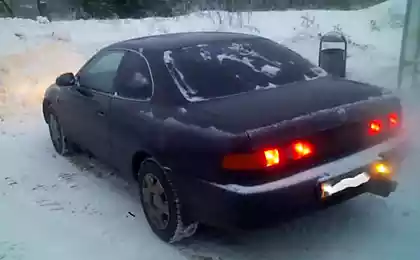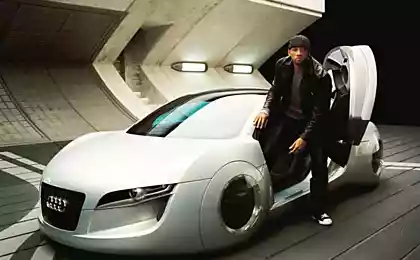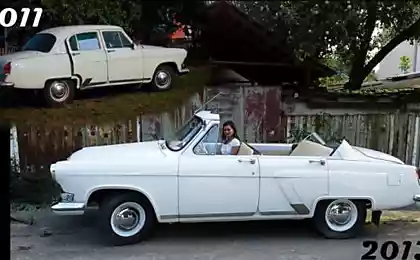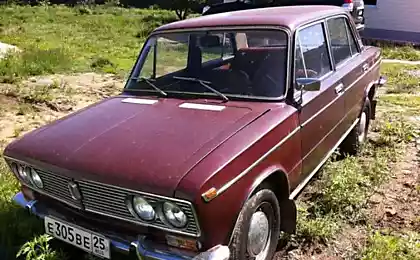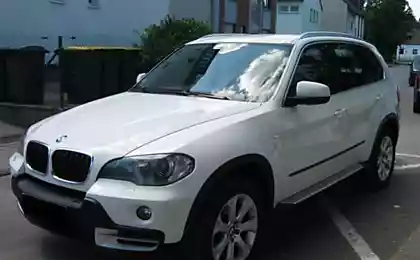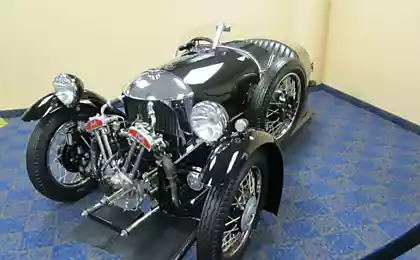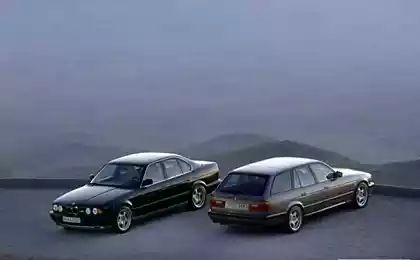1611
Wild avtoFrantsiya
We assumed Europe "fairyland" where justice reigns on the roads and mutual respect, and large SUVs have never parked on the sidewalks. Dispelling the myths of the Old World, what they saw with their own eyes.
Worth mention at once that in each country and even region of Europe laws, manners and customs of their own. This material - the fruit of constant observations of the world around them from the window of the rolling Peugeot 207 SW in the journey of several French provinces: Central, Burgundy, Rhone-Alpes, Provence, Languedoc, Pyrenees, Aquitaine and Limousin.
We talk about the quality of the roads, the driver of the local police and dealers. What to do if involved in an accident? Is it difficult to repair the car? Sharing personal experiences.
Will the letters and pictures
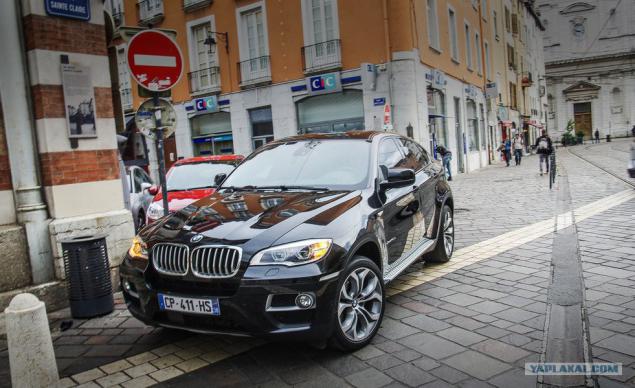
Vehicle fleet in France
Let's start with the banal. As in any normal development of the automotive country road dominates the local automotive industry. Renault, Peugeot and Citroen - these are the main inhabitants of the French roads. In second place - "team in Europe": Opel, Ford, VW, Volvo ... Basically - hechtbeki class B dominance universals, as in Germany, no.
Much more often than we have come across Italian exotics like Alfa Romeo and Lancia - particularly common in the border areas with Italy. Traces of Asian expansion: from "Japanese" flashed Toyota, from Koreans - Hyundai and, suddenly, SsangYong. Rare but regular catcher - the brainchild of a local manufacturer microcar Aixam.
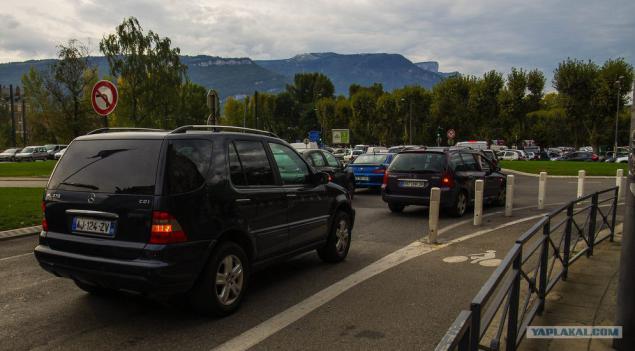
...
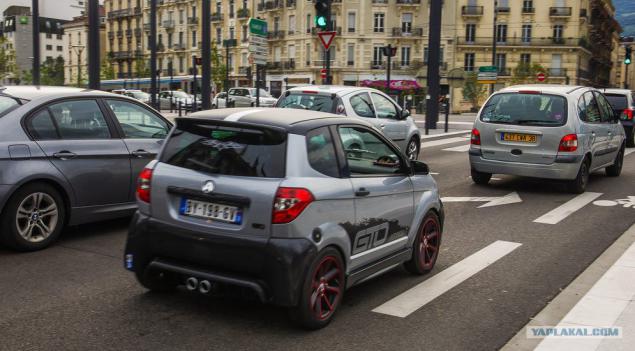
...
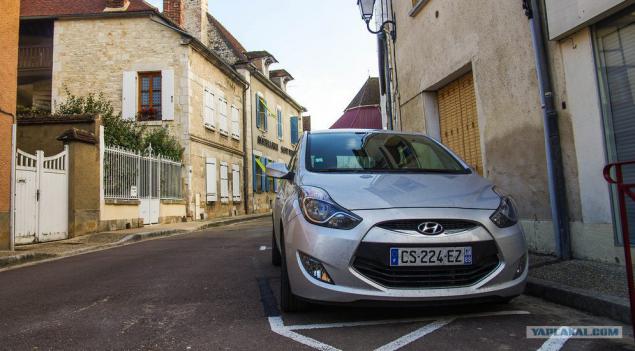
...
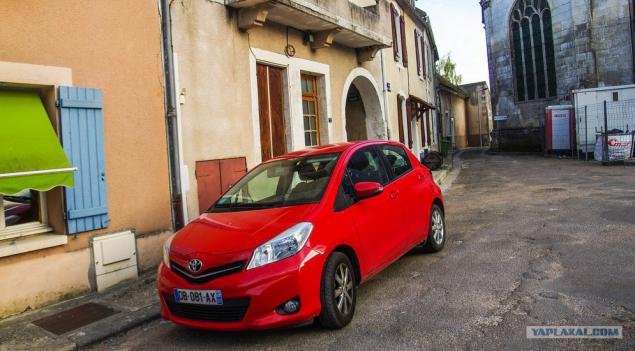
...
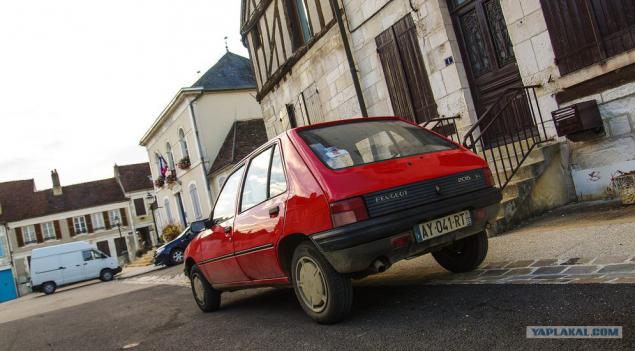
landscape gud
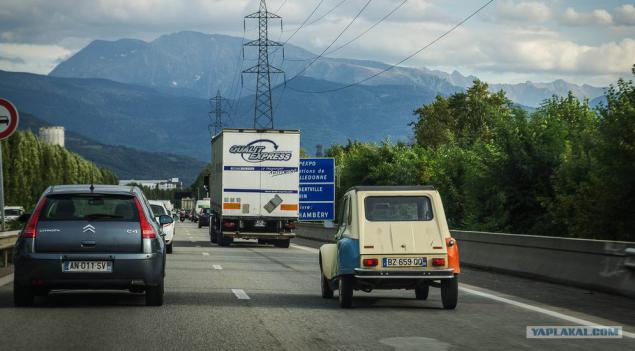
Our journalists often joke that meet Europe's large SUV can be no more than an elephant. This is misleading - the rural dirt roads in France lacking, and all-wheel drive technology, too - both old and new. Crossovers are many, but the apparent predominance of French models like Renault Koleos or Citroen C4 Aircross is not. From expensive "rogues" often come across Toyota Land Cruiser, and besides them noticed and BMW X5, and Mercedes M-Class and Porsche Cayenne.
Should also be said about the non-rich population - depending on the region of France, they have different preferences. On conservative Southwest focused "old" 20-year old French car, looking quite cheerful. To the east is more common Dacia - Logan, Sandero, Duster ... The French take them as their own, albeit with a strange symbol on the grill. Love so strong that meet the auto Dacia in the Burgundian village can hardly not more than Renault. And you say - Romanian car ...
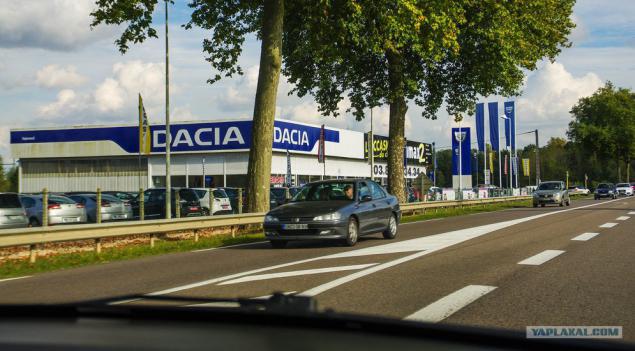
Oldtimer over 30 years on the road much more than in Russia, and not only French, but from around the world, including the United States. However, the most accessible and popular retro car - Citroen 2CV (the legendary "de shvo") ridden mostly not even grandparents, and local hipsters-retromany.
Roads and traffic in France
Pavement is generally good - never suspension of our Peugeot 207 SW showed me tight, although in Russia, I would certainly have criticized her, swearing on the tracks and potholes anywhere in the historic center of St. Petersburg. There are, of course, and patch and repair area. Once on the peripheral streets in the provincial city of the Languedoc region, the name of which weathered from memory, even managed to fix something like a slightly podrazbity asphalt.
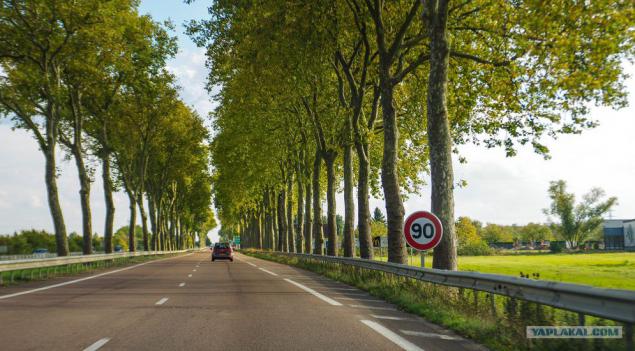
...
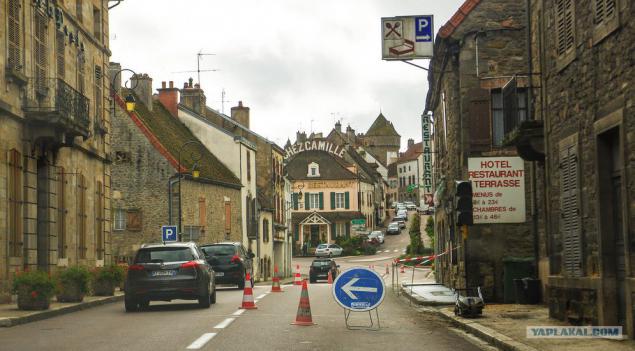
uh
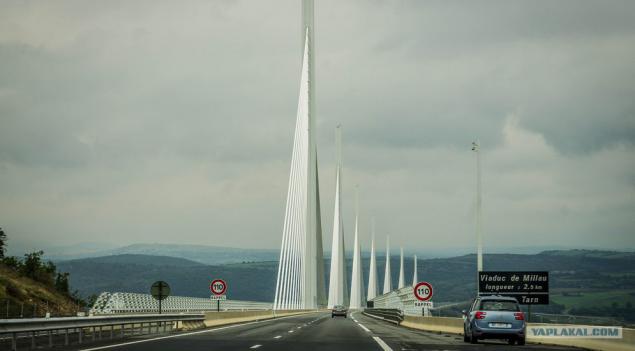
...
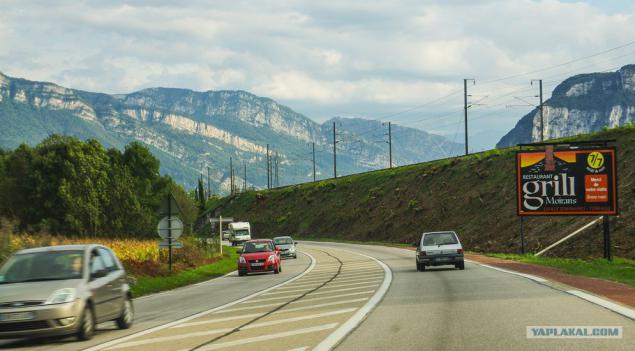
But if on the part of the road surface to the French largely fortunate climate (mid-October and 25 plus), the local road services just work well, without any luck. You go and you feel that you are respected. If you have repaired the road and did not have time to put markup - hang warning: "Attention, ahead RAW plot of 300 meters." Before the camera automatically record the velocity necessarily hangs a sign that says that the speed control is carried out for your own safety. Almost apologizing for any inconvenience. Whatever you say, but nice.
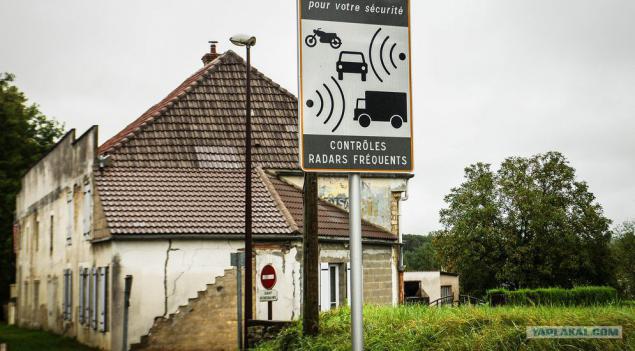
...
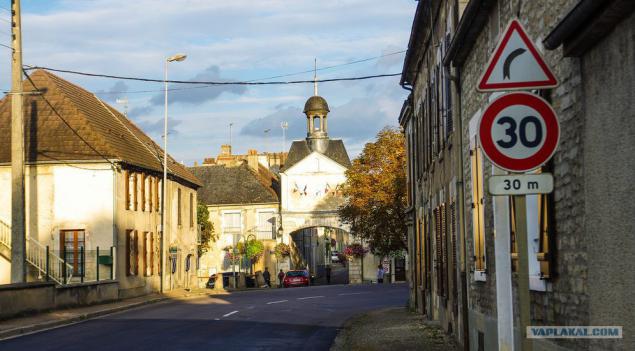
...
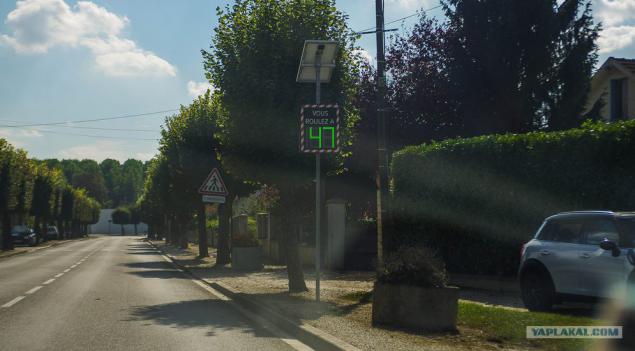
Often there are "radar" that simply measure the speed and displays it on the board to remind drivers to passing. If not exceed - green signal. Violated - red. Sometimes even light up beside "emoticons" - happy or sad. Speed limits - almost like we have 90 in the country, 110 on the track. In the 50 settlements, and sometimes even 30, but important clarification: the villages often can ride and 90, if they are small - this always warned in advance.
Should also be said about the toll roads. Yes, in France there is a network of free high-speed autobahns in Germany. But we will stay for the time used the toll road once when making the rounds Orleans and paid for it with 90 cents. Free understudies are not usually much longer and are in great shape. Sometimes there are even two lanes in each direction and a speed limit of 110 km / h. Anyone who is going to go in this country, I recommend to use only free track - it's not so much the economy as the ability to feel the "taste of France" in a small town with amazing architecture.
Morals drivers in France
Local motorists are nothing like the pedantic Germans. Get out of the second row of emergency gang or on the sidewalk? No problem. Turn left out of the middle row? Do not question. Get behind the wheel after a couple of beers? Ideally, if we consider that the rate of content - 0.8 ppm. Discipline? No, not heard.
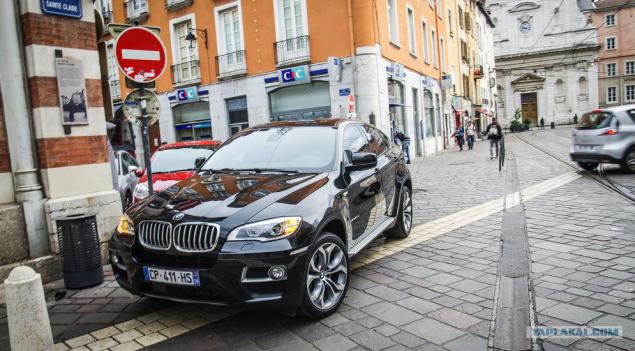
Understand the logic of their behavior is often unrealistic. On the track is forbidden to ride in the left lane, except for overtaking. The French driver overtaking a string of cars going slowly, be ritually travel in the left lane, to return to his, and then leave again to continue this senseless slalom, while all not overtake ... Why do this when the back is still one more quick no, and you're nobody in the left lane does not hurt, it is not clear.
But if you think it's all about the commitment of the law, then you are mistaken. Say, on roundabouts supposed to blink right before you dealed with it. French constantly neglect this simple rule, which creates problems neillyuzornye others. How to combine the minds of starry-eyed fans of baguettes these customs, the mind does not understand. We decided that this is a national tradition.
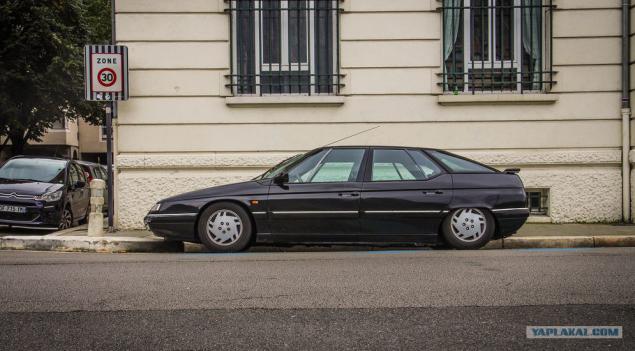
One could say that the French, in its irrationality and carelessness are close to us, but I will refrain. From Russia there is one fundamental difference. We road - a scene. Arena, where it is assumed to demonstrate their achievements, skills and wealth with an inferiority complex. In France, it is not so - they are simply "not steamed" about others, do not get angry and do not clog a head nonsense.
Accident on the rental car
On our trip we had to deal with the "dark side" of the French automotive life. In Grenoble, I did not let the guy on the Focus, which was trying to get into the series, turning to the left of the middle row, from which it was possible to go just right. Price perseverance - broken "into dust" right mirror of our Peugeot.
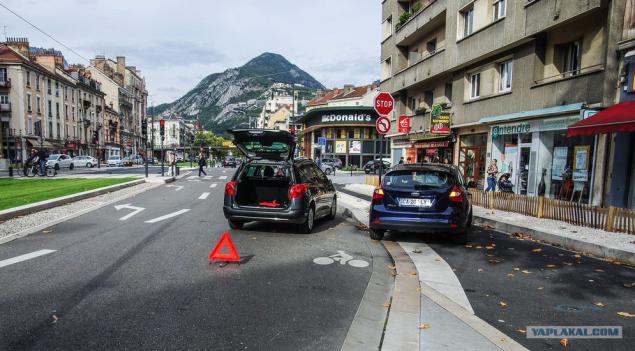
The main advice to anyone who has had an accident in Europe by car from rolling - always call the police, then to avoid problems with the insurance company. My counterpart at first generally wanted to leave after the collision, and slowed down only after I "blinked" and "zabibikal" him from behind. Then he tried to emphasize the fact that the accident is insignificant, and the sense to understand not, but I still got him to call the gendarmerie. Officials were quick to appear within ten minutes.
They took themselves quite differently, as in Russia. Came the whole company of five people did not do any measurements with a tape measure, no damage inspection ... after a cursory inspection of documents they just strolled around cars, secularly speaking with the second party to the accident in French. Which, by the way, on a blue eye argued that it was I clipped him.
I was prepared to have to go to the site to the local investigator, as our position, as you know, different. But such a procedure in France is not, and no certificates issued at the hands of an accident. The entire electronic document management, and on the degree of guilt of each dispute insurance companies - so they told me themselves brave gendarmes on pretty bad English.
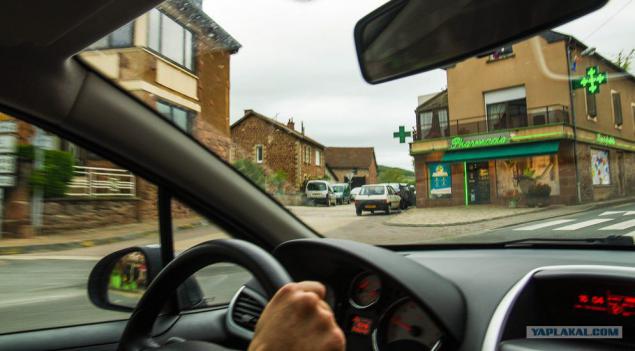
Insurance rolling machines in France
All rental cars here have a standard insurance policy CDW (Collision Damage Waiver). Roughly speaking, this is the equivalent of our helmets with a deductible. Typically, the size of the franchise - about 800 euros. What does this mean? If after the accident damage averaged 200 euros, you pay these same 200 euros. And if 1000 euro, you pay 800, and 200 you pay for insurance.
Russian media often write that pay damages out of pocket with insurance CDW will have in any case, even if you are not to blame for the accident. This is not true. If the accident is framed by the police, the insurance company compensates the costs culprit, as in Russia. However, when the machine is dealt back into rolling offices, they first take the money with you, and then pay them for two weeks. Moreover, the entire amount is deducted within the franchise - 800 euros. Further, if you are not guilty, you will get back all the money. And if you are guilty, then the difference between the amount of the deductible and the cost of repair.
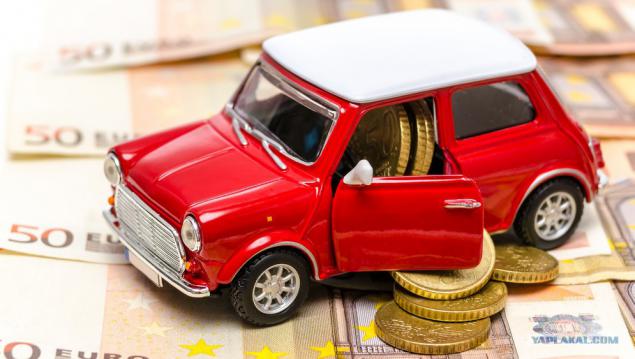
Spare parts for cars in France
I had the idea to avoid litigation with the insurance company, just buy a mirror in the shop for auto parts, and put his own. The benefit of the adjustment mechanism and the heating was left unscathed - only hurt the body and the mirror element. At the same time wanted to see how things are in the country with service vehicles.
But I waited three bad news. First, parts stores in France a little and trade "unoriginal" of development is much worse than in Russia. If you look, that is, and disassembly, and sites with directories, not to mention Ebay, where second-hand mirror assembly 1200 rubles worth of our money ... But when the item is needed urgently, one way - to the dealer.
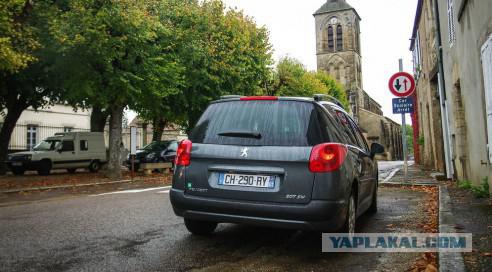
Inside, waited a second bad news. The lower part of the mirror housing Peugeot 207 is made in a single monolith with a mechanism for adjusting and fastening to the body. Change cheap plastmasski mirror element and not exit - only the replacement assembly.
Third bad news - the cost of original spare parts in France. Logically, everything here should be cheaper. In Russia, the mirror is worth about 7000-8000 rubles. Minus shipping from Europe, minus the customs, minus our taxes ... receive 177 euros or more than 9000 rubles! It turns out that the French dealers make more significant 'cheat' than ours.
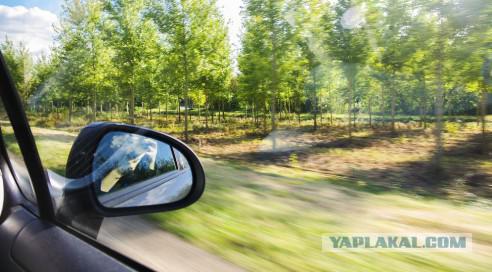
Instead of conclusion
As you can see, Europe is far from ideal that exists in the imagination of our fellow citizens. The French just trying to "hang" of guilt in an accident, to earn money for their customers and generally behave quite freely. Still on the road where there quietly, largely because of the peaceful disposition of others and professionalism of road services and police.
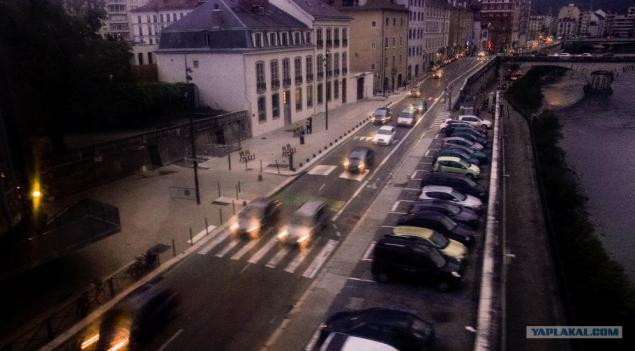
When we quietly drove home from the airport on Moscow Avenue, admiring Evening Petersburg, behind came the hysterical wail characteristic V-shaped "eight". Tinted Gelandewagen famously walked me right, nervously rearranged my face, immediately rushed to the far left, then roared again and motor ... ottormozilsya before the traffic lights. And then I finally realized that back home.
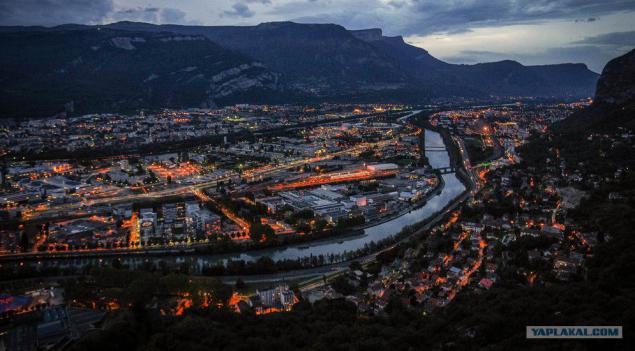
hence
maybe someone would be interested to read and discuss
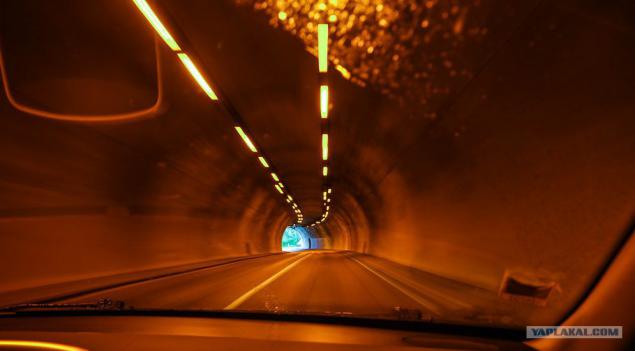
Worth mention at once that in each country and even region of Europe laws, manners and customs of their own. This material - the fruit of constant observations of the world around them from the window of the rolling Peugeot 207 SW in the journey of several French provinces: Central, Burgundy, Rhone-Alpes, Provence, Languedoc, Pyrenees, Aquitaine and Limousin.
We talk about the quality of the roads, the driver of the local police and dealers. What to do if involved in an accident? Is it difficult to repair the car? Sharing personal experiences.
Will the letters and pictures

Vehicle fleet in France
Let's start with the banal. As in any normal development of the automotive country road dominates the local automotive industry. Renault, Peugeot and Citroen - these are the main inhabitants of the French roads. In second place - "team in Europe": Opel, Ford, VW, Volvo ... Basically - hechtbeki class B dominance universals, as in Germany, no.
Much more often than we have come across Italian exotics like Alfa Romeo and Lancia - particularly common in the border areas with Italy. Traces of Asian expansion: from "Japanese" flashed Toyota, from Koreans - Hyundai and, suddenly, SsangYong. Rare but regular catcher - the brainchild of a local manufacturer microcar Aixam.

...

...

...

...

landscape gud

Our journalists often joke that meet Europe's large SUV can be no more than an elephant. This is misleading - the rural dirt roads in France lacking, and all-wheel drive technology, too - both old and new. Crossovers are many, but the apparent predominance of French models like Renault Koleos or Citroen C4 Aircross is not. From expensive "rogues" often come across Toyota Land Cruiser, and besides them noticed and BMW X5, and Mercedes M-Class and Porsche Cayenne.
Should also be said about the non-rich population - depending on the region of France, they have different preferences. On conservative Southwest focused "old" 20-year old French car, looking quite cheerful. To the east is more common Dacia - Logan, Sandero, Duster ... The French take them as their own, albeit with a strange symbol on the grill. Love so strong that meet the auto Dacia in the Burgundian village can hardly not more than Renault. And you say - Romanian car ...

Oldtimer over 30 years on the road much more than in Russia, and not only French, but from around the world, including the United States. However, the most accessible and popular retro car - Citroen 2CV (the legendary "de shvo") ridden mostly not even grandparents, and local hipsters-retromany.
Roads and traffic in France
Pavement is generally good - never suspension of our Peugeot 207 SW showed me tight, although in Russia, I would certainly have criticized her, swearing on the tracks and potholes anywhere in the historic center of St. Petersburg. There are, of course, and patch and repair area. Once on the peripheral streets in the provincial city of the Languedoc region, the name of which weathered from memory, even managed to fix something like a slightly podrazbity asphalt.

...

uh

...

But if on the part of the road surface to the French largely fortunate climate (mid-October and 25 plus), the local road services just work well, without any luck. You go and you feel that you are respected. If you have repaired the road and did not have time to put markup - hang warning: "Attention, ahead RAW plot of 300 meters." Before the camera automatically record the velocity necessarily hangs a sign that says that the speed control is carried out for your own safety. Almost apologizing for any inconvenience. Whatever you say, but nice.

...

...

Often there are "radar" that simply measure the speed and displays it on the board to remind drivers to passing. If not exceed - green signal. Violated - red. Sometimes even light up beside "emoticons" - happy or sad. Speed limits - almost like we have 90 in the country, 110 on the track. In the 50 settlements, and sometimes even 30, but important clarification: the villages often can ride and 90, if they are small - this always warned in advance.
Should also be said about the toll roads. Yes, in France there is a network of free high-speed autobahns in Germany. But we will stay for the time used the toll road once when making the rounds Orleans and paid for it with 90 cents. Free understudies are not usually much longer and are in great shape. Sometimes there are even two lanes in each direction and a speed limit of 110 km / h. Anyone who is going to go in this country, I recommend to use only free track - it's not so much the economy as the ability to feel the "taste of France" in a small town with amazing architecture.
Morals drivers in France
Local motorists are nothing like the pedantic Germans. Get out of the second row of emergency gang or on the sidewalk? No problem. Turn left out of the middle row? Do not question. Get behind the wheel after a couple of beers? Ideally, if we consider that the rate of content - 0.8 ppm. Discipline? No, not heard.

Understand the logic of their behavior is often unrealistic. On the track is forbidden to ride in the left lane, except for overtaking. The French driver overtaking a string of cars going slowly, be ritually travel in the left lane, to return to his, and then leave again to continue this senseless slalom, while all not overtake ... Why do this when the back is still one more quick no, and you're nobody in the left lane does not hurt, it is not clear.
But if you think it's all about the commitment of the law, then you are mistaken. Say, on roundabouts supposed to blink right before you dealed with it. French constantly neglect this simple rule, which creates problems neillyuzornye others. How to combine the minds of starry-eyed fans of baguettes these customs, the mind does not understand. We decided that this is a national tradition.

One could say that the French, in its irrationality and carelessness are close to us, but I will refrain. From Russia there is one fundamental difference. We road - a scene. Arena, where it is assumed to demonstrate their achievements, skills and wealth with an inferiority complex. In France, it is not so - they are simply "not steamed" about others, do not get angry and do not clog a head nonsense.
Accident on the rental car
On our trip we had to deal with the "dark side" of the French automotive life. In Grenoble, I did not let the guy on the Focus, which was trying to get into the series, turning to the left of the middle row, from which it was possible to go just right. Price perseverance - broken "into dust" right mirror of our Peugeot.

The main advice to anyone who has had an accident in Europe by car from rolling - always call the police, then to avoid problems with the insurance company. My counterpart at first generally wanted to leave after the collision, and slowed down only after I "blinked" and "zabibikal" him from behind. Then he tried to emphasize the fact that the accident is insignificant, and the sense to understand not, but I still got him to call the gendarmerie. Officials were quick to appear within ten minutes.
They took themselves quite differently, as in Russia. Came the whole company of five people did not do any measurements with a tape measure, no damage inspection ... after a cursory inspection of documents they just strolled around cars, secularly speaking with the second party to the accident in French. Which, by the way, on a blue eye argued that it was I clipped him.
I was prepared to have to go to the site to the local investigator, as our position, as you know, different. But such a procedure in France is not, and no certificates issued at the hands of an accident. The entire electronic document management, and on the degree of guilt of each dispute insurance companies - so they told me themselves brave gendarmes on pretty bad English.

Insurance rolling machines in France
All rental cars here have a standard insurance policy CDW (Collision Damage Waiver). Roughly speaking, this is the equivalent of our helmets with a deductible. Typically, the size of the franchise - about 800 euros. What does this mean? If after the accident damage averaged 200 euros, you pay these same 200 euros. And if 1000 euro, you pay 800, and 200 you pay for insurance.
Russian media often write that pay damages out of pocket with insurance CDW will have in any case, even if you are not to blame for the accident. This is not true. If the accident is framed by the police, the insurance company compensates the costs culprit, as in Russia. However, when the machine is dealt back into rolling offices, they first take the money with you, and then pay them for two weeks. Moreover, the entire amount is deducted within the franchise - 800 euros. Further, if you are not guilty, you will get back all the money. And if you are guilty, then the difference between the amount of the deductible and the cost of repair.

Spare parts for cars in France
I had the idea to avoid litigation with the insurance company, just buy a mirror in the shop for auto parts, and put his own. The benefit of the adjustment mechanism and the heating was left unscathed - only hurt the body and the mirror element. At the same time wanted to see how things are in the country with service vehicles.
But I waited three bad news. First, parts stores in France a little and trade "unoriginal" of development is much worse than in Russia. If you look, that is, and disassembly, and sites with directories, not to mention Ebay, where second-hand mirror assembly 1200 rubles worth of our money ... But when the item is needed urgently, one way - to the dealer.

Inside, waited a second bad news. The lower part of the mirror housing Peugeot 207 is made in a single monolith with a mechanism for adjusting and fastening to the body. Change cheap plastmasski mirror element and not exit - only the replacement assembly.
Third bad news - the cost of original spare parts in France. Logically, everything here should be cheaper. In Russia, the mirror is worth about 7000-8000 rubles. Minus shipping from Europe, minus the customs, minus our taxes ... receive 177 euros or more than 9000 rubles! It turns out that the French dealers make more significant 'cheat' than ours.

Instead of conclusion
As you can see, Europe is far from ideal that exists in the imagination of our fellow citizens. The French just trying to "hang" of guilt in an accident, to earn money for their customers and generally behave quite freely. Still on the road where there quietly, largely because of the peaceful disposition of others and professionalism of road services and police.

When we quietly drove home from the airport on Moscow Avenue, admiring Evening Petersburg, behind came the hysterical wail characteristic V-shaped "eight". Tinted Gelandewagen famously walked me right, nervously rearranged my face, immediately rushed to the far left, then roared again and motor ... ottormozilsya before the traffic lights. And then I finally realized that back home.

hence
maybe someone would be interested to read and discuss


